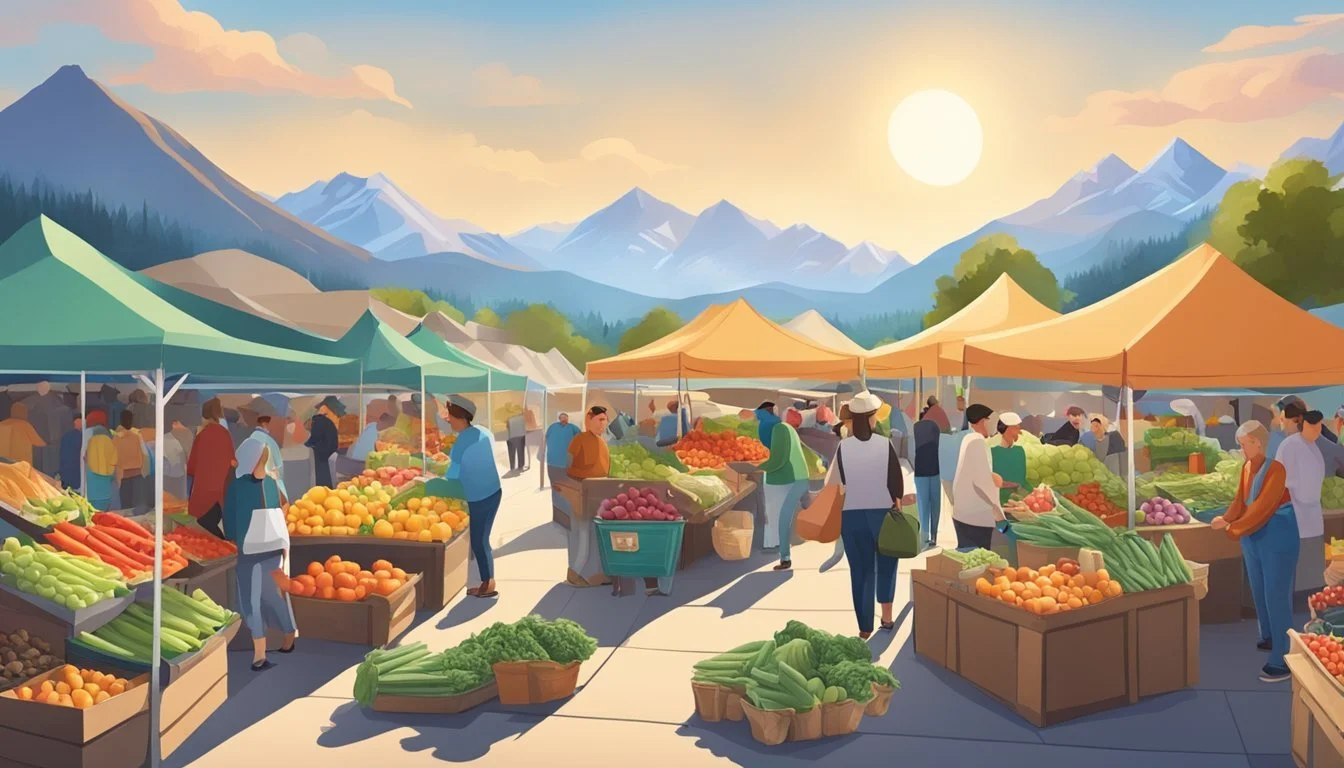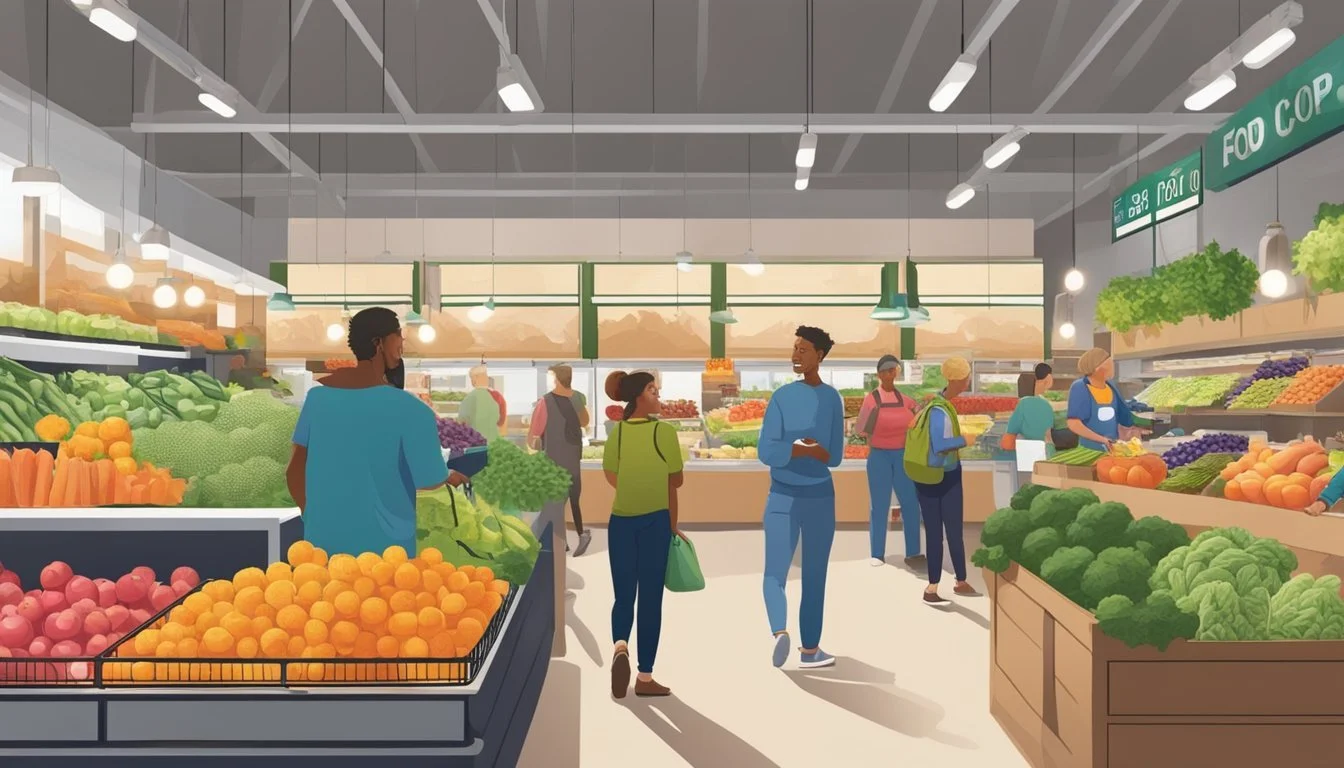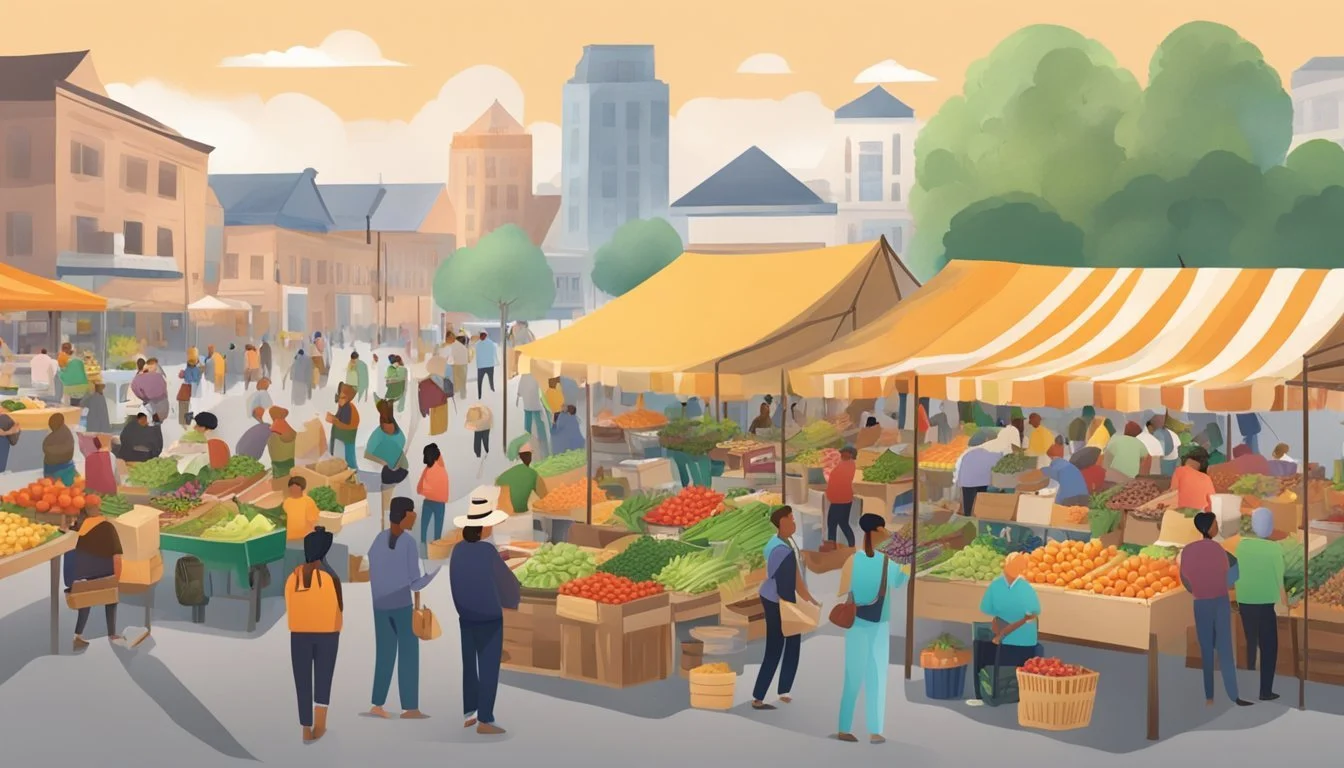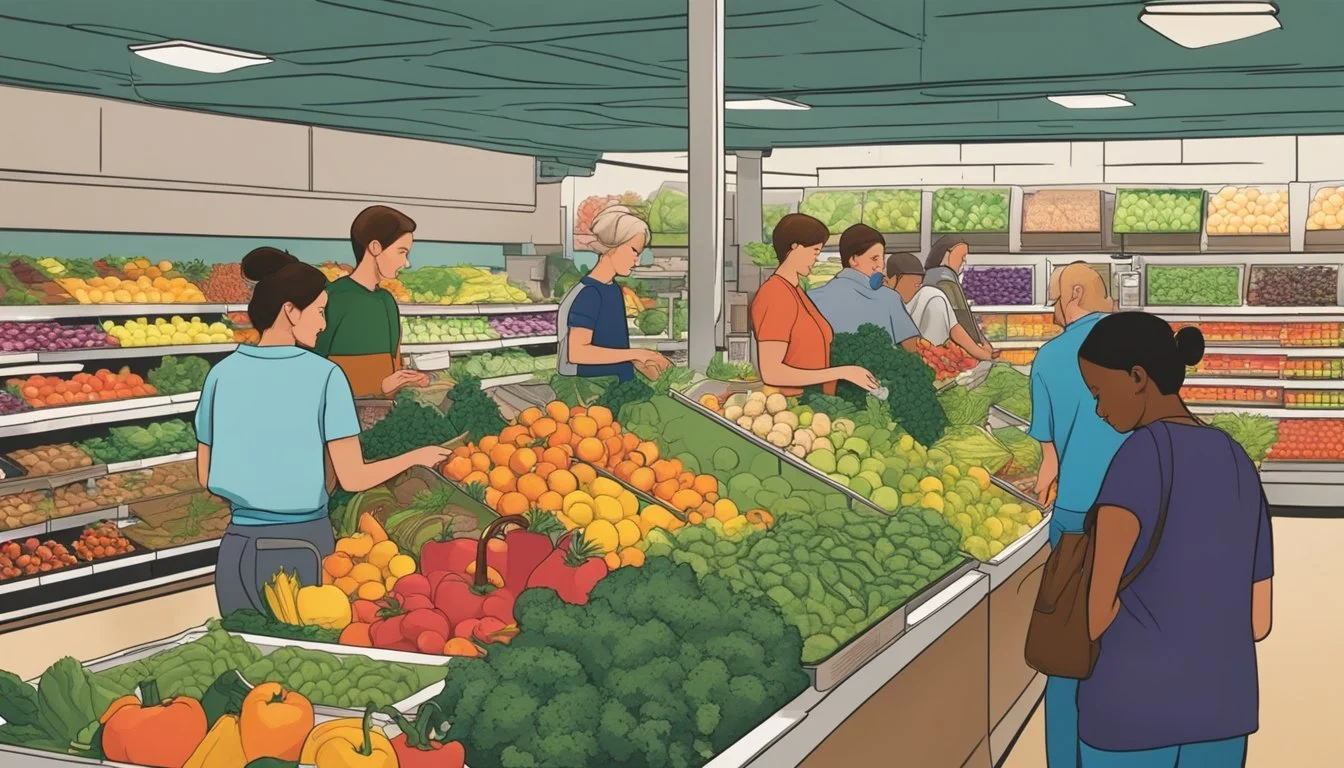Guide to Food Co-Ops in Colorado Springs, CO
Your Essential Shopping Resource
Colorado Springs, Colorado, renowned for its scenic beauty and outdoor recreational opportunities, is also a community where local food movements and cooperative grocers thrive. Food co-ops in the region cater to those who value sustainable agriculture, community-centric business models, and nutritionally rich offerings. At the heart of these cooperatives is a commitment to provide high-quality food sourced from local producers, which supports the regional economy and reduces environmental impacts associated with long-distance transportation of goods.
Residents and visitors alike may take advantage of local markets, such as Mountain Mama Natural Foods, that emphasize organic selections and health-focused products. Unique to these food co-ops is their member-owned structure, which empowers consumers to have a say in the operational affairs and provides a sense of ownership in the local food supply chain. As such, they are an integral part of the community that not only offer a retail experience but also strive to educate on the importance of quality and the value of supporting local farmers and artisans.
Collaboration between Colorado Springs co-ops and local farms ensures that the freshest fruits, vegetables, and artisan goods are readily available. This partnership is important for maintaining a seasonal and diverse inventory that maximizes nutritional benefits for the community. These co-ops, including newer models like Farm To Fork Colorado which deliver straight to the doorstep, showcase the innovative and adaptive approaches of Colorado Springs toward healthier, sustainable living and community well-being.
History of Food Co-Ops
Food cooperatives, or food co-ops, have evolved from early mutual aid systems to community-focused retail outlets. They combine a commitment to community support with the practicalities of grocery retail.
Origins of Cooperatives
The foundational concept of the cooperative began in Europe amid the Industrial Revolution. Workers sought to create equitable systems of mutual support as traditional agrarian lifestyles gave way to urban living. This shift resulted in the first cooperatives, pivotal for communities needing reliable access to good-quality, affordable food.
Food Co-Ops in Colorado
In Colorado, food cooperatives have grown alongside the movement's broader historical development. They provide not only a source of groceries but also serve as centers for education and research into sustainable practices and food security. Local efforts have established these cooperatives as integral parts of Colorado's economy and culture.
Benefits of Shopping at Food Co-Ops
Shopping at food co-ops in Colorado Springs not only offers residents access to fresh produce and goods but also supports the local economy and fosters community engagement. These collective benefits play a crucial role in sustaining the vibrant community-centric ethos for which Colorado Springs is known.
Supporting Local Economy
Local Impact: Food co-ops are instrumental in keeping financial resources within the community. By choosing to shop at these establishments, consumers directly invest in local businesses and entrepreneurs, which in turn stimulates economic growth and local job creation.
Economic Multiplier: Money spent at local co-ops has a greater likelihood of being recirculated locally, ensuring more robust local prosperity.
Access to Fresh Produce
Freshness and Quality: Co-ops prioritize sourcing produce locally, ensuring customers have access to fresh, high-quality food.
Seasonal Varieties: Shoppers are often treated to a diverse selection of seasonal items, directly supporting regional farmers and providing a fresher alternative to products shipped over long distances.
Community Engagement
Inclusivity and Connectivity: Co-ops naturally become hubs for community interaction, uniting people through shared values of healthful living and responsible consumerism.
Participation Opportunities: Members often have a say in business operations, fostering a sense of ownership and accountability in the health and direction of their local co-op.
How Food Co-Ops Work
In Colorado Springs, a food co-op operates on a system where members own the store and play a vital role in its operations, fostering a sense of community investment and participatory culture.
Membership and Ownership
Membership in a food co-op is open to anyone who chooses to participate by purchasing a share. When an individual becomes a member, they gain ownership in the cooperative. This entitles them to various benefits, such as:
Voting rights: Each member has a say in significant decisions.
Dividends: Profits are often shared among members based on patronage.
Members contribute to the co-op’s capital, making them invested stakeholders, not just customers. This model ensures that the co-op's primary focus remains serving the community's needs rather than external shareholders.
Volunteer and Participatory Culture
Food co-ops thrive on a volunteer and participatory culture. Members can participate in a variety of ways:
Volunteering: Members may work shifts in the co-op. This labor contribution can reduce operational costs.
Committee involvement: Members can join committees to drive initiatives within the cooperative.
A participatory culture emphasizes the role of members as active contributors to the co-op’s success. They're not simply shoppers but integral parts of the cooperative's structure and community.
Finding Food Co-Ops in Colorado Springs
Colorado Springs hosts a network of food co-ops offering quality groceries and support for local producers. These member-controlled businesses typically prioritize product quality and community education.
Directory of Locations
Mountain Mama Natural Foods: A well-known staple for organic products and health-centric items.
LocalHarvest Listings:
Busy Bee Farm: Located in nearby Larkspur, known for local produce.
Heritage Belle Farms: Based in Calhan, offering a range of farm produce.
Colorado Springs residents can further explore these and other co-ops by investigating LocalHarvest's online directory or by direct enquiries with local farmers' markets.
Comparison with Grocery Stores
Food Co-ops:
Often owned by workers or customers.
Focus on high-quality, ethically sourced products.
Prices can be higher, but member benefits may offset costs.
Grocery Stores:
Owned by corporations or private entities.
Offer convenience with a wide range of products.
May not focus on local or organic offerings.
Food co-ops in Colorado Springs cater to consumers who value community involvement and product origins, often providing a different experience compared to traditional grocery stores.
Seasonal Availability
Food co-ops in Colorado Springs thrive on the philosophy of fresh, local produce, which means they often feature seasonally available products. This practice supports local agriculture and provides consumers with fresh options that vary throughout the year. Patrons can expect an ever-changing selection of produce that reflects the region's growing seasons.
What to Buy at Food Co-Ops
Food Co-Ops in Colorado Springs offer a variety of items for those interested in supporting local producers and artisans. They provide a range of organic and local produce, alongside unique artisanal products and crafts, ensuring quality and freshness.
Organic and Local Produce
At the heart of food co-ops in Colorado Springs is a commitment to organic and local produce. Shoppers can find:
A wide array of vegetables and fruits, grown without the use of synthetic pesticides or fertilizers.
Seasonal selections that support local agriculture and reduce environmental impact due to shorter transportation distances.
Expect to see items such as crisp Colorado apples, heirloom tomatoes, and fresh salad greens directly sourced from nearby farms.
Artisanal Products and Crafts
In addition to fresh produce, food co-ops often feature artisanal products and crafts. These include:
Homemade baked goods and deli items, made from organic ingredients for wholesome snacks and meals.
Handcrafted items from local artisans, such as pottery, jewelry, and textiles, perfect for gifts or home accents.
Purchasers can support the local economy and craftsmanship, finding exclusive products that aren't available at standard grocery stores.
Community Impact and Initiatives
Food co-ops in Colorado Springs have become instrumental in shaping a more equitable and sustainable food system. They deploy a range of community-driven initiatives, emphasizing local engagement and support.
Educational Programs
Food co-ops in the area, particularly through platforms like the Hillside Hub, offer extensive educational programs focusing on food sustainability, equity, and accessibility. Programs seek to disrupt systemic inequities in the local food system and aim to foster greater health equity. The curriculum often involves hands-on learning experiences that empower community members to make informed food choices and understand the importance of food sources and nutrition.
Local Farmers and Artisans Support
Farmers and artisanal producers find an ally in Colorado Springs' food co-ops. These co-ops prioritize:
Direct purchasing from local farmers, bolstering the local economy and shortening the food supply chain.
Events and markets that showcase local artisans, allowing them to connect directly with the community and flourish.
By supporting and collaborating with these producers, food co-ops help sustain the community's cultural and agricultural heritage.
Participating in Food Co-Ops
Food co-ops in Colorado Springs offer community members the chance to directly support and engage with their local food system. Membership allows individuals to contribute to cooperative governance and enjoy various member benefits.
How to Become a Member
To join a food co-op, individuals typically need to purchase a share or pay a membership fee. This fee serves as an investment into the cooperative and grants the individual a membership status. For example, the Mountain Mama Natural Foods, a notable local co-op, would offer memberships to interested parties who meet their criteria and agree to their terms of membership.
Initial Steps:
Inquire at the co-op about membership requirements.
Complete an application form.
Purchase a share or pay the membership fee, which could range in value.
Engagement in Governance
Members are given a chance to participate in decision-making processes. Each member typically holds one vote and can exercise it during elections for the board of directors or other key policy decisions. Regular meetings are held, encouraging members to voice their opinions and contribute to the future of the cooperative.
Ways to Engage:
Attend general meetings and vote on crucial issues.
Run for election in the co-op's board of directors.
Participate in community events organized by the co-op.
Events and Activities at Food Co-Ops
Food co-ops in Colorado Springs are not just places to buy groceries; they are centers for community building and education. These co-ops offer various events and activities tailored to bring people together and promote sustainable living.
Workshops and Classes: Many co-ops host classes where individuals can learn about nutrition, cooking with organic produce, and canning techniques. These classes are often led by local experts or co-op staff members who share their knowledge and passion for food.
Local Farmer Markets: Regular events, such as pop-up farmer markets, are organized by food co-ops. These markets provide community members with access to fresh, locally-sourced fruits and vegetables, and often include meet-and-greets with the farmers themselves.
Community Meetings: Co-ops serve as venues for community meetings where topics like cooperative development, local food initiatives, and environmental sustainability are discussed. Members can actively participate and contribute to the community's well-being.
Special Events: Holidays and seasonal celebrations are a time for special events at food co-ops. These may include tastings, cooking competitions, or harvest festivals that encourage community participation and showcase local produce.
Volunteering Opportunities: Volunteering is a cornerstone of co-operative operations, providing members with a way to connect, contribute, and learn more about the workings of their food co-op.
Through these activities, food co-ops in Colorado Springs foster a sense of community, emphasize the importance of local and sustainable food systems, and provide educational opportunities for people of all ages.









